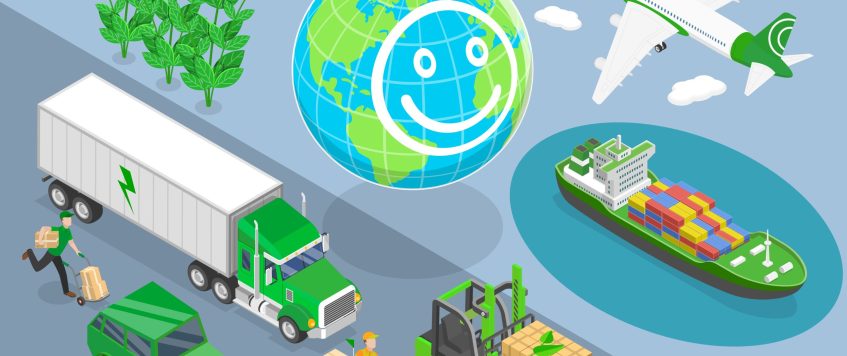-
12
Sep
Sustainability and building an eco-friendly supply chain has become a cornerstone of responsible and forward-thinking logistics practices in today’s rapidly evolving business landscape.
As we embark on a journey towards a greener future, the importance of sustainable logistics cannot be overstated.
This blog will explore the various sides of sustainable logistics, its significance, and how eco-friendly practices can be harnessed to create a more efficient and environmentally responsible supply chain.
What is Sustainable Logistics?
Sustainable logistics is the practice of optimising the movement of goods while minimising the negative impact on the environment.
It involves a holistic approach to the entire supply chain, focusing on reducing waste, energy consumption, and emissions. By prioritising sustainability, companies can enhance their reputation, reduce costs, and comply with regulatory requirements.
Masters understand that sustainability isn’t just about being environmentally conscious; it’s also a sound business strategy. Including:
Cost Savings: Sustainable practices can reduce energy consumption, lower transportation costs, and decrease waste.
Risk Mitigation: By proactively addressing environmental concerns, businesses can mitigate risks related to regulations and consumer preferences.
Enhanced Reputation: Customers and investors increasingly favour eco-friendly brands, improving a company’s reputation and market competitiveness.
Long-Term Viability: Sustainable logistics practices ensure long-term viability by conserving resources and minimising environmental impact.
Reducing Carbon Footprint in Transportation
Masters Logistical are exploring alternative fuels to power their fleets, with Knowles Transport already securing their first fully electric vehicle earlier this year!
Electric and hybrid vehicles are gaining popularity in logistics due to their low emissions and operational cost savings. Masters recognise the value of transitioning to electric options for a greener future.
Efficient Packaging and Waste Management
Mastering sustainable logistics involves adopting eco-friendly packaging materials like biodegradable plastics, recycled cardboard, and reusable packaging solutions. These choices reduce waste and promote recycling.
Collaboration with suppliers is crucial to minimise packaging waste. We work closely with our partners to develop sustainable packaging solutions and reduce excess packaging.
Green Warehousing and Distribution Centres
Sustainable logistics practices extend to warehousing and distribution centres, where energy-efficient lighting and equipment reduce energy consumption and operational costs.
Efficient space utilisation reduces the need for additional warehousing, reducing energy consumption and environmental impact.
Masters optimise inventory levels to minimise waste, storage costs, and the environmental footprint of excess goods.
Collaboration and Partnerships for Sustainability
We collaborate with suppliers committed to sustainable practices, fostering a supply chain that aligns with eco-friendly values.
Sustainable logistics isn’t just an internal endeavour; it involves engaging customers in eco-friendly supply chain efforts.
Communicating your commitment to sustainability can create a more loyal customer base.
Future Trends and Innovations in Sustainable Logistics
Automation and digitisation are expected to play a pivotal role in eco-friendly supply chains, streamlining processes and reducing waste.
As sustainability continues to evolve, we anticipate developments in regulatory frameworks, new green technologies, and consumer demands, staying prepared to adapt and lead in this ever-changing landscape.
In conclusion, the world of logistics is evolving, and sustainability has emerged as a defining factor in its transformation. The journey towards mastering sustainable logistics is towards a more environmentally responsible and economically efficient future.
The greener future of logistics is in all of our hands.
